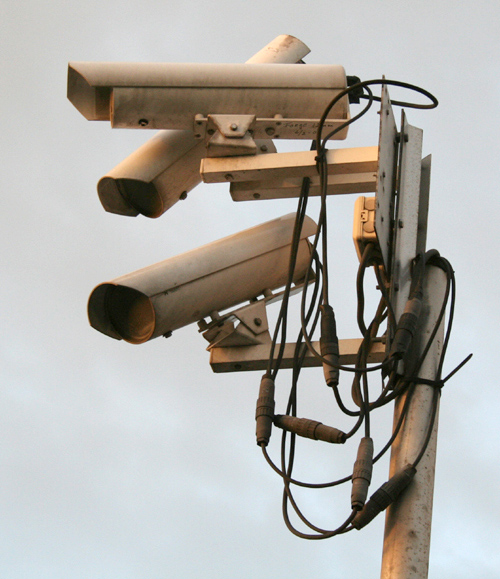London's most wanted


So What?
It strikes me that there are a few problems with the study as reported. First, there's no mention of camera density--boroughs with different areas may have very different camera densities even if they have the same number of cameras. And density is obviously important: A block with one camera will theoretically be more dangerous than a block with 10. (Or maybe London boroughs are required to be of a standard, EU-specified size and I'm just, as usual, Euro-ignorant.)
Second, the figures don't take into account crime prevention as opposed to crime solving. What about looking at the historical record and trying to correlate drops in crime with increases in camera deployment? No mention (in the article). (This is clearly something that the Freakonomics people should look into.)
That said, it's still sobering. I mean, the cameras are supposed to take pictures of crimes in progress so that, when they're later reported, pictures of the assailant (or pickpocket or swindler or mime) can be retrieved and distributed. And that part clearly isn't working. In an effort to address the problem, the police are setting up a unit whose function is specifically to distribute pictures of suspects. (What the police have been doing with them to date, I do not know.)
To my surprise, many of the pictures--those they choose to publish, anyway--are actually pretty good. Shots of the London bombers, for example, are excellent--clear facial features in more or less full color. Bad likenesses don't seem to be the problem.
My guess is that a fuller picture of the situation will emerge when the Conservative members of the London Assembly (presumably inclined to like the cameras where the Liberal Democrats are not) publish their own analysis, which I suspect is now inevitable.
What I find interesting is that neither side seems to be debating the civil liberties issue: it has, apparently, been decisively won by the forces of law and order. The battleground is now utility, not ethics, which represents quite a shift. I doubt the Liberal Democrats can win on that basis--10,000 cameras represent an awful lot of police eyeballs watching over London: they have to be having some deterrent effect. Don't they?